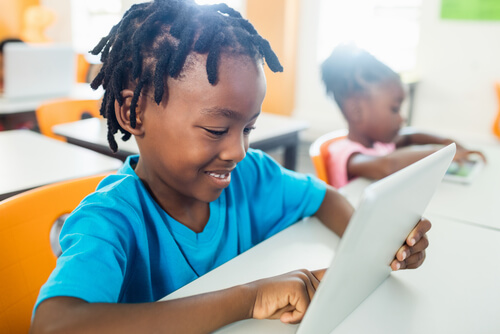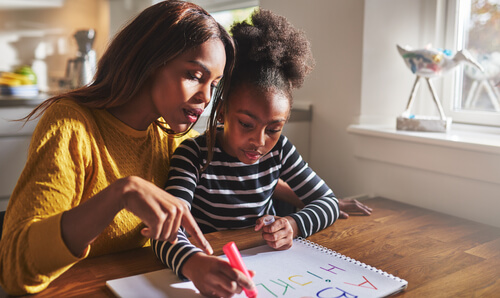Bilingual Therapy and How Speech Blubs Can Help
In This Article
- A Personal Story: Meet Nkukuleko
- Why My Story is Relevant to Speech Blubs
- Here’s How You Can Help Your Bilingual Child
- You Can Always Count on Speech Blubs to Help
Being a Speech Therapist in South Africa, I’ve had to overcome many challenges when providing therapy to almost every child I’ve seen. South Africa has 11 official languages with a 12th one on its way (South African Sign Language), and with most of the population speaking African languages, it’s difficult for monolingual English therapists such as myself to provide quality speech therapy services – something that is echoed across the globe in various contexts and settings.
A Personal Story: Meet Nkukuleko
(Indaba yomuntu)
I’ll never forget my first encounter as a student with a child who could not speak English. Being told that I would be his ‘teacher,’ he ran up to me and proclaimed, “Sawubona! Igama lami nginguNkukuleko!”
Well… I was later told that if my face had been an emoji, it would have looked something like this: O_O.
Apparently, the little boy had just greeted me and told me that his name was Nkululeko. Because he was speaking to me in isiZulu, I had absolutely no idea what he had said, and so began our tumultuous but ultimately very rewarding speech therapy experience.

Nkululeko had a language delay in his first language (isiZulu) which was affecting his ability to learn English as a second language. The speech therapy plan was to catch him up to an age-appropriate level in isiZulu before moving on and teaching him English. Sounds simple, right? Theoretically, yes. But realistically, no.
Seeing as I didn’t know a word of isiZulu, I decided to use themes as targets for speech therapy, that way, I could learn the vocabulary and sentence structure pertaining to each theme beforehand, and then conduct my sessions in isiZulu using what I had learned.
It was a long and arduous process, and there were many bumps that Nkululeko and I had to get over for his bilingual speech therapy to be a success. But we got over them, and soon he was speaking age-appropriately in isiZulu and was ready to move on and learn English.
Why My Story is Relevant to Speech Blubs
(Kungani udaba lwami lufanele Speech Blubs)
I know my story seems completely random, but I feel it’s an important one to tell in the context of Speech Blubs.
Currently, the Speech Blubs app can be used in:
- American English
- British English
- Spanish
- Portuguese
- French
The Speech Blubs app is revolutionary, and it’s something that I wish I had access to as a student (and even now as a professional). While it was interesting to teach myself a new language, google pictures, and make vocabulary cards, the reality is that it was incredibly time consuming – especially since Nkululeko wasn’t the only child I was seeing. At any given point in time, I would be seeing children who spoke English, Afrikaans, isiZulu, SeSotho, isiXhosa, and more!
That’s A LOT of languages to learn, and it’s difficult to give quality therapy when spread so thin. An app like Speech Blubs would have been a lifesaver, as it would have cut down on the time I had to devote to preparing for my bilingual therapy sessions, as well as having the added benefit of correct pronunciation and entertaining visuals! Even better, is the broad range of activities that the app provides. Though Nkululeko’s chief difficulty was his language delay, he also had trouble with articulation and coordinating his oral motor movement – things that Speech Blubs addresses with ease!
Though Speech Blubs doesn’t have any African languages (yet), it is a wonderful resource that is far ahead of its time and is already making waves in bilingual speech therapy.
Here’s How You Can Help Your Bilingual Child
(Nakhu ukuthi ungayisiza kanjani ingane yakho yezilimi ezimbili)

Unfortunately, a lot of the children I saw for speech therapy as a student, and some I still see today, were very impoverished, making it difficult for them to get therapy assistance outside of our sessions. I used to conduct my sessions with Nkululeko at the orphanage where he lived, and it was impossible for his caregivers to devote time only to him and his speech therapy purely because of the sheer number of children they had to look after.
Raising a bilingual child has its challenges; however, if you don’t have access to the Speech Blubs app or other resources, there are some passive activities you can do at home to help your child:
- Videos: Children love educational shows and cartoons, and if you can get them to watch some in the language you are targeting, then you should begin to notice an improvement relatively quickly.
- Books: Picture books with vocabulary in the target language are great for language learning. But don’t be disheartened if you don’t have any picture books or find them to be a bit too costly. Take a magazine or a newspaper and flip through it with your child. Using the target language, talk about what you see in the pictures, what you think is happening, and even makeup stories using the images as prompts.
- Music: Sing-along songs are the best, but even having the radio on and tuned to a station that uses the target language can be an excellent tool to help your child learn.
You Can Always Count on Speech Blubs to Help
(Ungahlala uthembele kuma-Speech Blubs ukuze usize)
Whether your child is monolingual, bilingual, or even multilingual, you have an ally in Speech Blubs. We are here to help your child reach their greatest potential, and you can help us help you. Download Speech Blubs and take charge of your child’s learning today.
 By Natalie Barnes
By Natalie Barnes